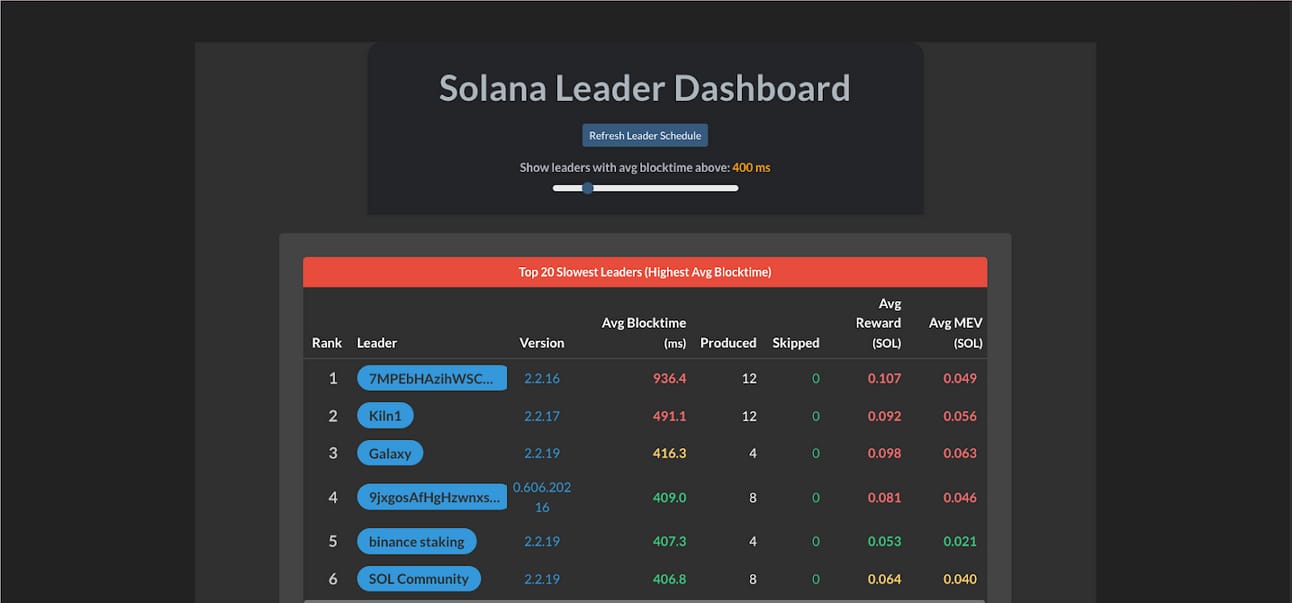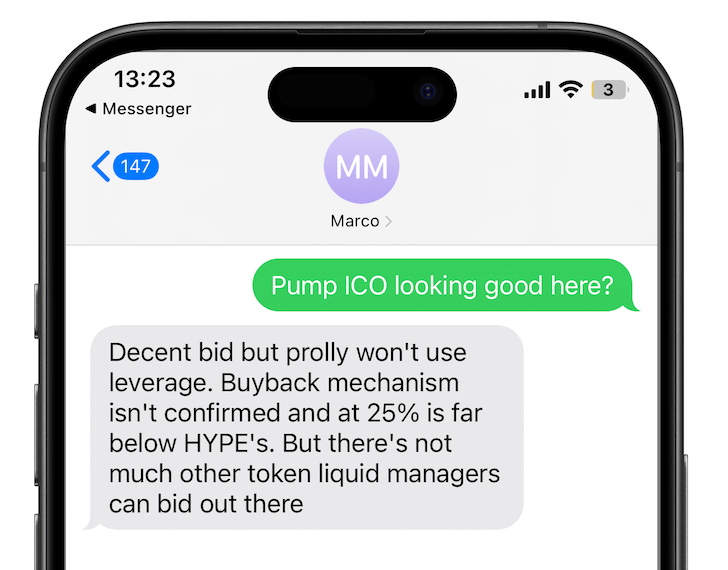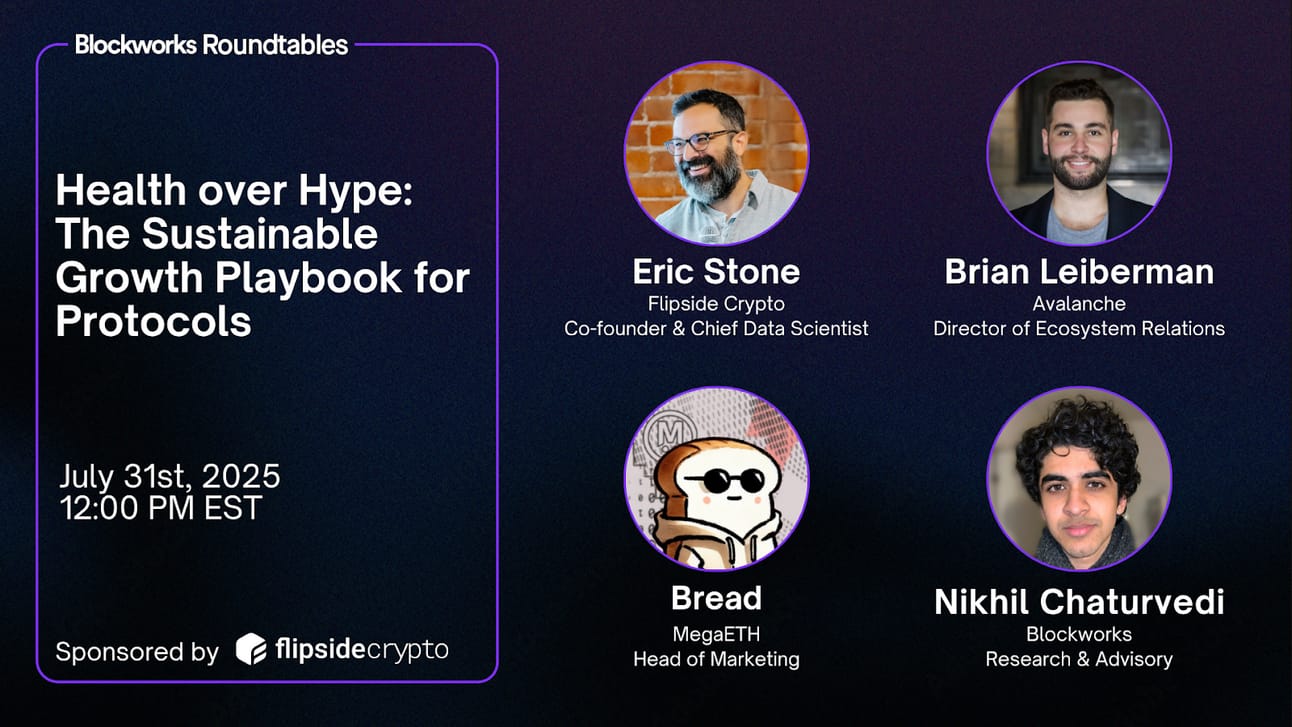- Lightspeed
- Posts
- ❤️🔥 Firedancing in the dark
❤️🔥 Firedancing in the dark
Jump dev gives the latest on the client

Howdy!
Coinbase reportedly launched a six-figure marketing campaign for Crypto Week in DC, only for crypto bills to be dealt a big procedural blow in the House. Max pain.
Today, we’ve got the latest on Firedancer, Solana’s slow validator problem, and a Jito cryptoeconomics subDAO:
Solana Firedancer dev sheds light on the project’s difficulties
Solana’s Firedancer client — a high performance implementation of the blockchain’s software being built by Jump — was first announced in 2022.
Nearly three years later, the project still comes with training wheels.
That’s a very long time in the crypto world, so when Firedancer developer Michael McGee joined me on the Lightspeed podcast this week, I was curious to get his take on the client’s timeline. McGee painted an enormously difficult engineering task: rewriting a poorly documented codebase from scratch while the original software sees constant upgrades.
“The fact that…the product is alive…is, I think, pretty impressive,” McGee said of Firedancer.
Firedancer’s biggest current obstacle is the conformance problem, McGee said, where the validator must perfectly match the existing Agave client’s behavior under all circumstances. Conformance is made harder by the fact that Solana developer shop Anza ships a lot of new code, so the software is something of a “moving target,” McGee said.
Anza’s proposed Solana consensus rewrite, Alpenglow, is a “perfect example of something that makes our life very, very difficult,” McGee said, noting that he had personally implemented what he saw as the best possible proof-of-history implementation into Firedancer.
Under Alpenglow, proof-of-history will go away, making all that work moot.
In the meantime, Firedancer’s more limited client has seen growing adoption. Frankendancer is up to 9.3% of all staked SOL, according to Blockworks Research data. Validators running Frankendancer have noticed better-packed blocks, we reported previously.
With Solana’s current block limit of 50 million compute units, McGee said Firedancer can’t push performance as far as it would like to, so it has focused on more efficiently packing blocks in the interim.
When I asked him for Solana’s ideal block limit — which basically defines how compute-intensive blocks can be — McGee said the barrier should be removed entirely, and validators should be left to come to a block size equilibrium.
So that hallowed figure of one million transactions per second is likely a way off, but in the meantime, a number to watch will be 20%: When that proportion of Solana stake is running Frankendancer, the network will be vulnerable to stoppages from the client but better protected from an infinite mint bug.
— Jack Kubinec
P.S. Fill out our short audience survey and help us build a better Lightspeed. Thank you!
In crypto, hype fades but sustainable ecosystems win. Learn how top protocols are building for the long haul.
Join Blockworks Research, MegaETH, Flipside Crypto and Avalanche for this upcoming Roundtable.
📅 July 31 | 12 PM EST

Someone built a cool visualizer for Solana’s slow validator problem:

Basically, it seems that a number of Solana validators have found that it’s economically optimal to wait as long as possible to produce blocks, thus slowing Solana down.
Solana’s validator community has been whispering about this for some time, but the trend has increasingly spilled into public view in recent days.
— Jack Kubinec

Jito’s JIP-17 proposal has officially passed following a successful vote over the weekend.
First introduced in June, the initiative calls for the launch of a Cryptoeconomics subDAO led by a six-member multisig of domain experts from Jito Foundation, University College Dublin, MIT, MetaDAO, Chainflow and Kairos Research.
This subDAO will have the autonomy to deploy funds, test mechanisms and build tooling that helps JTO holders capture more value from the network.
The proposal passed with 12,710,163 “yes” votes and just 14 against. Now that it’s approved, 5 million JTO and 40,549 JitoSOL will be transferred to a designated multisig wallet, and members will be onboarded as they verify their addresses.
Over its 12-month mandate, the subDAO will hold monthly consensus conclaves, deploy capital toward experimental economic mechanisms and issue quarterly public reports to the DAO.
— Jeffrey Albus

A message from Marco Manoppo, former investor at Primitive Ventures:
Note: This DM was sent before pump.fun apparently began buybacks

Spread Solana cheer to make perks appear 🎉
Don’t keep us a secret. Tell your friends and bag some bonuses with the Lightspeed referral program.
📣 3 referrals: A personal shoutout in the Lightspeed newsletter
💬 10 referrals: Lightspeed host and newsletter writer Jack will put you in the One Good DM section of one edition
